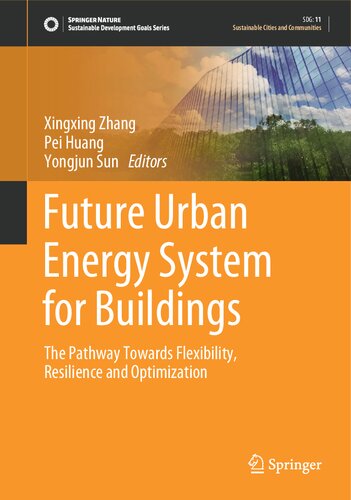

Most ebook files are in PDF format, so you can easily read them using various software such as Foxit Reader or directly on the Google Chrome browser.
Some ebook files are released by publishers in other formats such as .awz, .mobi, .epub, .fb2, etc. You may need to install specific software to read these formats on mobile/PC, such as Calibre.
Please read the tutorial at this link: https://ebookbell.com/faq
We offer FREE conversion to the popular formats you request; however, this may take some time. Therefore, right after payment, please email us, and we will try to provide the service as quickly as possible.
For some exceptional file formats or broken links (if any), please refrain from opening any disputes. Instead, email us first, and we will try to assist within a maximum of 6 hours.
EbookBell Team

4.4
52 reviewsThis book investigates three main characteristics of future urban energy system for buildings, including flexibility, resilience and optimization. It explores the energy flexibility by considering renewable energy integration with buildings, sector coupling, and energy trading in the local energy market. Energy resilience is addressed from aspects of future climate change, pandemic crisis, and operational uncertainties. Approaches for system design, dynamic pricing and advanced control are discussed for the optimization of urban energy system. Knowledge from this book contributes to the effective means in future urban energy paradigm to closely integrate multiple energy systems (i.e., distribution, mobility, production and storage) with different energy carriers (i.e., heat, electricity) in an optimal manner for energy use. It would facilitate the envision of next-generation urban energy systems, towards sustainability, resilience and prosperity.
This book targets at a broad readership with specific experience and knowledge in energy system, transport, built environment and urban planning. As such, it will appeal to researchers, graduate students, engineers, consultants, urban scientists, investors and policymakers, with interests in energy flexibility, building/city resilience and climate neutrality.